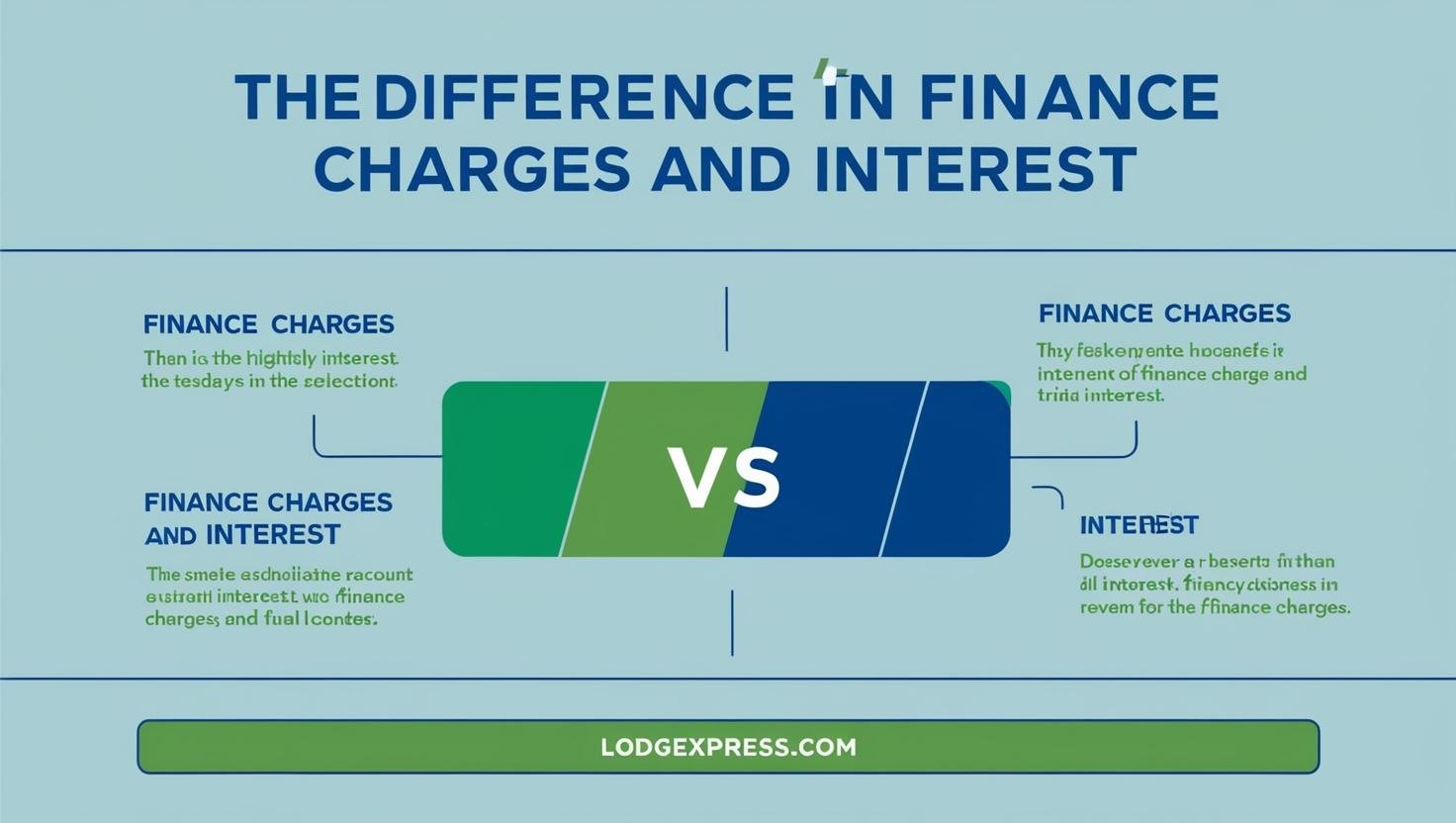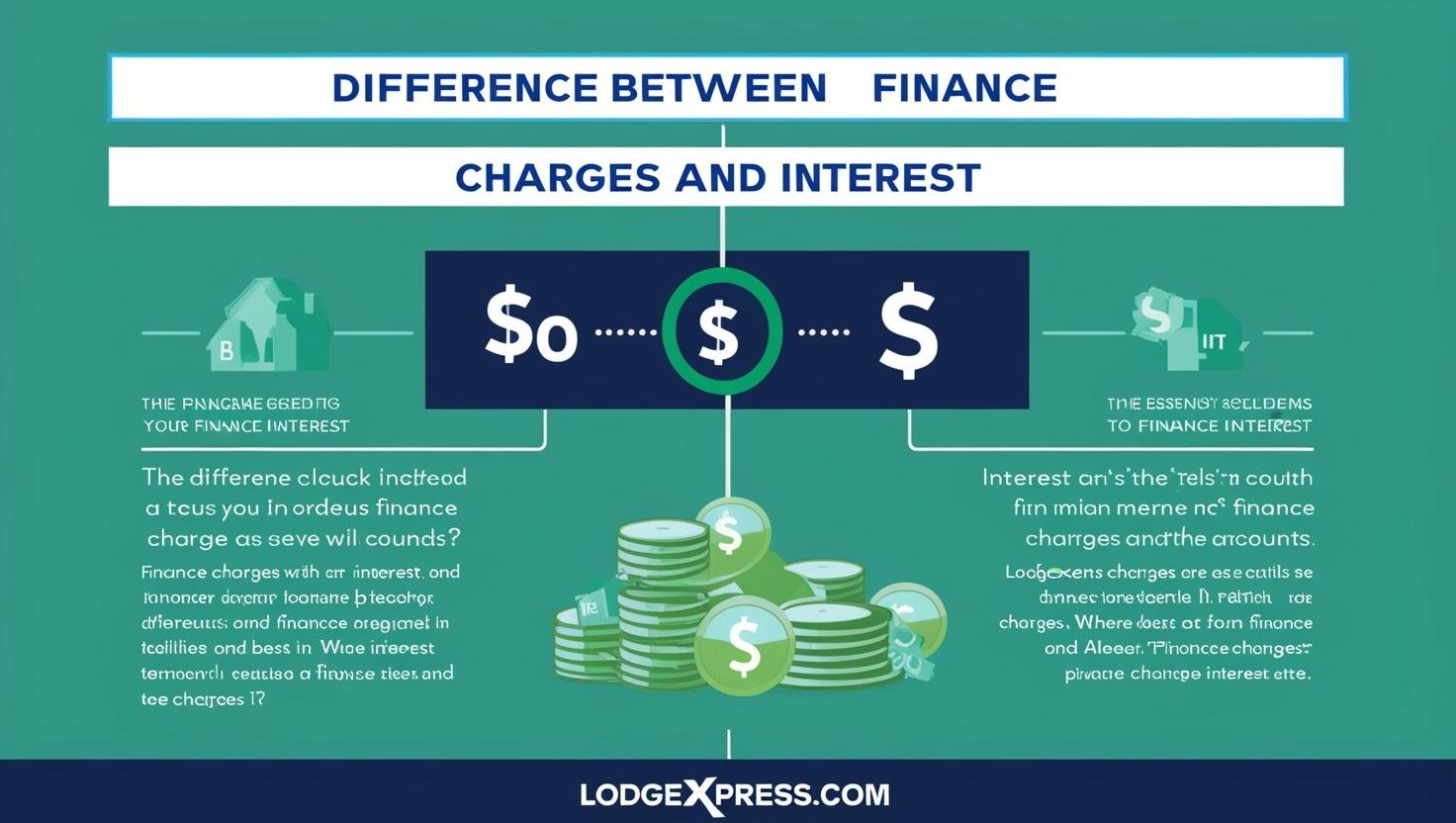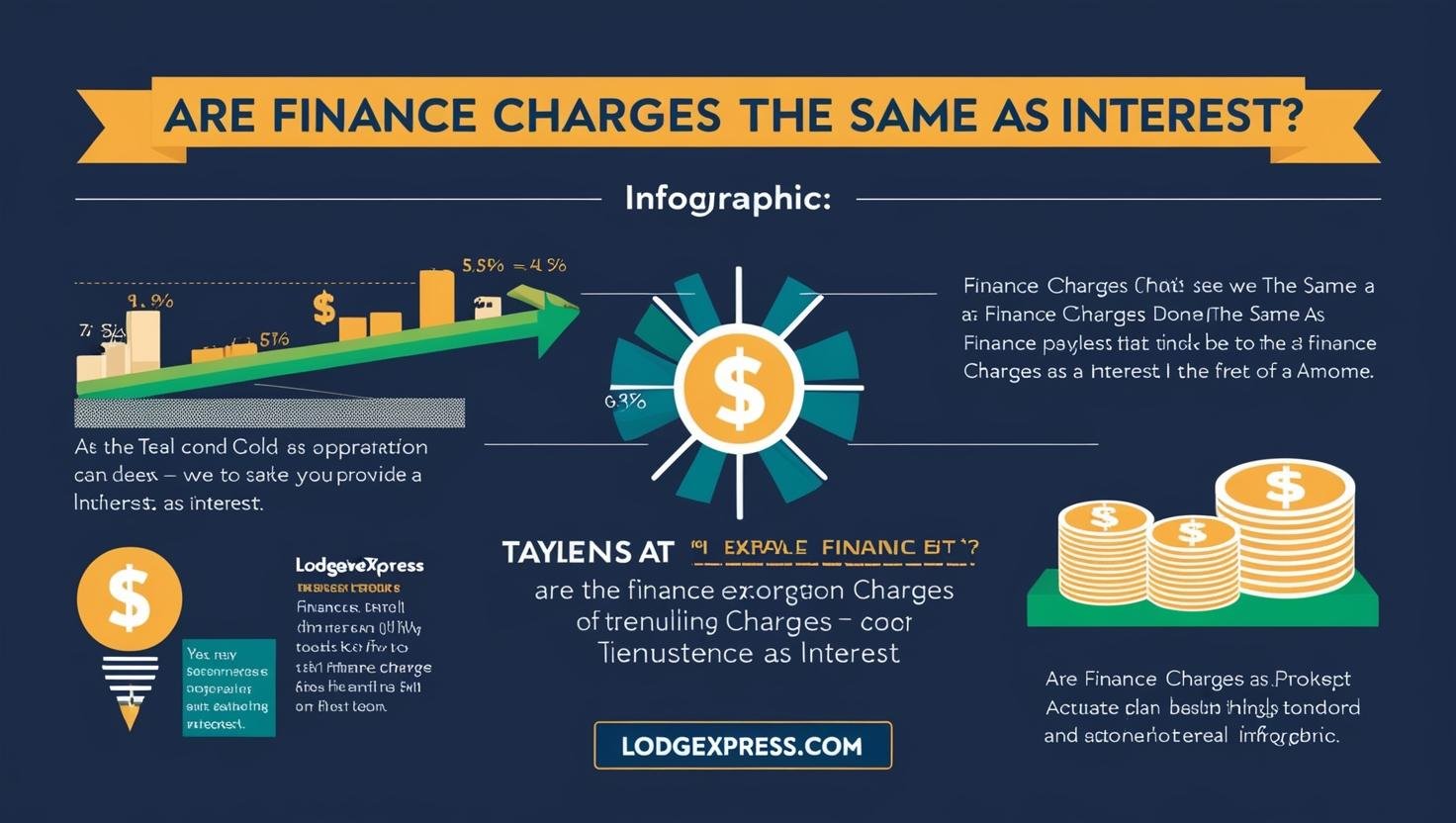Are Finance Charges the Same as Interest?
Demystifying Finance Charges and Interest

Every time you borrow money or use credit, you’re expected to pay more than you borrowed. That extra cost is often described using terms like “interest” and “finance charge.” But are finance charges the same as interest?
Quick Answer: No, finance charges and interest are not the same.
Understanding the distinction is critical when managing your personal finances. Whether you’re applying for a mortgage, using a credit card, or financing a new car, knowing what you’re truly paying helps you make informed decisions and save money.
In this comprehensive guide, we’ll break down everything you need to know about finance charges and interest, how they work, why they matter, and how to avoid excessive borrowing costs.
What is a Finance Charge?
A finance charge is the total cost of borrowing money. It encompasses all the expenses a lender imposes for providing credit, not just the interest.
Finance Charges May Include:
- Interest payments
- Origination fees
- Service charges
- Late payment fees
- Annual fees (on credit cards)
- Balance transfer fees
- Cash advance fees
- Closing costs (on loans/mortgages)
Why Are Finance Charges Important?
Understanding finance charges gives you a complete view of what you’re really paying. A loan with a low interest rate may still carry high finance charges due to extra fees.
What is Interest?
Interest is the cost of borrowing money, typically expressed as a percentage (interest rate) of the loan amount (principal). It is one component of the finance charge.
Types of Interest:
Simple Interest: Charged only on the principal.
- Compound Interest: Charged on both the principal and any accumulated interest.
Interest Calculation Example:
- Loan Amount: $1,000
- Interest Rate: 10% annually
- After 1 year: $1,100 total (you pay $100 in interest)
This $100 is the interest, but if additional fees are added, those make up the finance charge.
Finance Charges vs Interest: Key Differences

Here is a side-by-side comparison to illustrate the distinction:
SEO Keywords Used:
- Difference between finance charges and interest
- Are finance charges the same as interest?
- Interest vs finance charge
- What is a finance charge
- Credit card finance charges
- Total loan cost
Common Finance Charges by Credit Type
Credit Cards:
- Interest (usually monthly)
- Annual fees
- Late payment penalties
- Balance transfer fees
- Cash advance charges
Personal Loans:
- Origination fees
- Processing fees
- Prepayment penalties
Mortgages:
- Loan points (prepaid interest)
- Closing costs
- Application fees
Auto Loans:
- Documentation fees
- Title and registration fees
- Dealer markup interest
How Are Finance Charges Calculated?
Finance charges are calculated differently based on the type of loan and lender.
Typical Calculation:
Finance Charge = Interest + Fees + Other Charges
Example:
- Principal: $5,000
- Interest: $250
- Origination Fee: $100
- Late Fee: $50
Total Finance Charge = $400
Why You Should Care About Finance Charges
Ignoring finance charges can lead to unexpected costs that inflate your debt and impact your financial health.
Consequences of High Finance Charges:
- Higher total repayment
- Damaged credit score (if you default)
- Lower borrowing power in the future
Financial Tip:
Always ask your lender for the APR (Annual Percentage Rate) instead of just the interest rate. APR includes most finance charges and offers a clearer picture of your borrowing cost.
How to Reduce or Avoid Finance Charges
You can minimize or eliminate finance charges with smart financial practices.
Tips to Avoid or Lower Finance Charges:
- Pay your credit card balance in full every month
- Avoid late payments
- Choose 0% APR offers when available
- Use credit cards with no annual or transfer fees
- Compare loans based on APR, not just interest rates
- Negotiate fees when taking out loans
Bonus Tip:
Use tools like loan calculators or finance charge estimators to plan your borrowing.
Real-World Comparison: Credit Card vs Personal Loan
Let’s compare two ways of borrowing $2,000:
Credit Card:
- APR: 24%
- Annual Fee: $95
- Monthly interest: $40
- Late fee: $35 (missed once)
Finance Charge (1 year) = ($40 x 12) + $95 + $35 = $610
Personal Loan:
- APR: 12%
- Origination Fee: $50
- No other fees
Finance Charge (1 year) = 12% of $2,000 + $50 = $290
Conclusion: While credit cards seem convenient, the total finance charge is significantly higher.
Legal Requirements for Finance Charge Disclosure
Lenders must disclose finance charges under the Truth in Lending Act (TILA).
What Must Be Disclosed:
- Interest rate (APR)
- Total finance charge in dollars
- Payment schedule
- Total repayment amount
Why This Matters:
It ensures you know what you’re agreeing to before you sign any credit agreement.
Frequently Asked Questions (FAQs)
1. Is interest included in the finance charge?
Yes. Interest is part of the finance charge, but the finance charge also includes other fees.
2. Can finance charges be negotiated?
Some fees can be negotiated, such as loan origination fees, closing costs, or annual fees.
3. Are finance charges tax-deductible?
Generally, interest on mortgages may be tax-deductible. Other finance charges are typically not deductible.
4. Do all loans come with finance charges?
Yes. Every form of credit has some cost, whether it’s interest, service fees, or both.
5. What is APR vs Finance Charge?
APR (Annual Percentage Rate) represents the annual cost of borrowing, expressed as a percentage. It includes interest + most fees, making it a close equivalent to finance charges.
Summary: Finance Charges vs Interest
- Finance charges = the total cost of borrowing (interest + fees)
- Interest = the percentage fee for using borrowed money
- Finance charges affect credit cards, loans, mortgages, and more
- Always compare APR to evaluate total loan cost
- Minimize finance charges by paying in full, on time, and avoiding unnecessary fees
Final Thoughts: Be a Smart Borrower
Understanding the full cost of credit is key to making smarter financial decisions. Many borrowers focus only on interest rates and ignore fees that can add hundreds or even thousands to the total repayment.
Actionable Steps:
- Check your statements regularly
- Know what fees your lender is charging
- Avoid high-cost loans and revolving debt
- Use APR, not just interest rate, to compare options
Knowledge is financial power. Use it to your advantage and avoid hidden costs that derail your budget.
